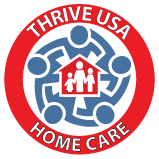Care Following a Hospital Discharge
A journey to the hospital might last several days for an older adult, and medical procedures can bring a slew of additional caregiving tasks that persist long after the patient returns home.
Older adults frequently require higher levels of care during a hospital stay, which translates into higher care needs after discharge. It is key that family caregivers completely understand what is required as soon as possible, as this will better equip them to coordinate the care required to keep their loved ones safe and recuperate.
Preparation is Key
Caring for a loved one following a hospital discharge can be extremely challenging without a plan. Not only are the care requirements increased, but caregivers may be concerned about anything that could go wrong, such as restricted mobility leading to a fall, drug combinations creating major health difficulties, or even the risk that their loved one’s health would deteriorate. All of these are legitimate concerns, but there are ways to find relief.
Preparing for a discharge should begin as soon as your loved one is admitted to the hospital so that you and your family can prepare for all your loved one will require before they are released. This can prevent frenzied searches for professional help, as well as mistakes caused by stress and panic.
Knowing the specifics of your loved one’s post-discharge care, communicating with doctors and nursing staff to gain a clear picture of their health, and being aware of your options are all methods to reduce the stress and anxiety that comes with caring for a recently hospitalized family member.
You can ensure that your loved one receives the best care possible from you and the rest of their care team by being prepared and organized. Even better, if they see you in command of the situation, they will feel well-cared for. When the more difficult aspects of care are considered ahead of time, everyone involved can breathe a little easier.
Home Care Is Important after Discharge
Recovery from an accident or illness does not end when you and your loved one leave the hospital. Any medical condition that necessitates a hospital stay will most certainly require weeks — if not months — of recuperation time. Following the instructions of your loved one’s doctor and nurses is important to a healthy recovery.

Too many Americans, in fact, take recovery for granted, failing to recognize the risks that come with a hospital visit. You might be surprised that around 18% of Medicare-covered hospital stays are followed by a readmission within 30 days. When a condition recurs, readmission can occur, but it can also occur due to a secondary, related condition. For example, many patients suffer weakness and exhaustion following a hospital visit, increasing the chance of a broken bone caused by a fall at home.
It goes without saying that when your loved one leaves the hospital, they have no intention of returning anytime soon. Making sure they get the help they need around the house is one of the best strategies to lower their chances of readmission. Following a hospital discharge, in-home care ensures that your loved one receives the proper support they need to maximize their chances of full recovery. This type of care can take many forms, including weekly check-ins, daily visits, and 24-hour support and monitoring.
Medical or NonMedical Home Care
When assessing whether a loved one needs hospital discharge in-home care, it is essential to determine whether your loved one requires medical care or non-medical care. This is an important distinction to make because some in-home care requirements can only be met by licensed medical professionals. You should consult with your loved one’s doctor to determine what type of care is best for him or her.
Find a Care Solution
It is important for family caregivers to understand that hospitalization can frequently result in a complete care plan that extends much beyond the hospital release or affect the way they must approach care in the future. For family caregivers, this can be a frightening and challenging time. However, being prepared can offer the caregiver stability and comfort, as well as help them feel more secure in their own talents and the health of their loved ones.
When a family member requires more care, it may be wise to consider a long-term option, such as professional in-home care services. If you’re finding it difficult to juggle full-time caregiving with your other responsibilities, in-home care can give you the post-discharge attention your loved ones require while you’re at work.
Our caregivers help clients recuperate by reminding them to take medications, assisting them with areas of physical therapy, and lending a helping hand around the house to make life simpler. Contact Thrive USA Home Care today or call (301) 882-4717 if you are interested in our compassionate home care services for yourself or a loved one.


